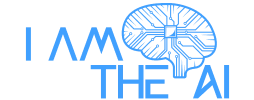For a lot of college students, ChatGPT has turn out to be as customary a software as a pocket book or a calculator.
Whether or not it’s tidying up grammar, organising revision notes, or producing flashcards, AI is quick changing into a go-to companion in college life. However as campuses scramble to maintain tempo with the expertise, a line is being quietly drawn. Utilizing it to know? Positive. Utilizing it to put in writing your assignments? Not allowed.
Based on a latest report from the Larger Schooling Coverage Institute, nearly 92% of scholars at the moment are utilizing generative AI in some type, a soar from 66% the earlier 12 months.
“Actually, everyone seems to be utilizing it,” says Magan Chin, a grasp’s scholar in expertise coverage at Cambridge, who shares her favorite AI examine hacks on TikTok, the place ideas vary from chat-based examine classes to intelligent note-sifting prompts.
“It’s developed. At first, individuals noticed ChatGPT as dishonest and [thought] that it was damaging our important pondering expertise. However now, it’s extra like a examine companion and a conversational software to assist us enhance.”
It has even picked up a nickname: “Folks simply name it ‘Chat’,” she says.
Used correctly, it may be a strong self-study software. Chin recommends giving it class notes and asking it to generate apply examination questions.
“You’ll be able to have a verbal dialog such as you would with a professor and you’ll work together with it,” she factors out, including that it could actually additionally make diagrams and summarise tough matters.
Jayna Devani, the worldwide schooling lead at ChatGPT’s US-based developer, OpenAI, recommends this sort of interplay. “You’ll be able to add course slides and ask for multiple-choice questions,” she says. “It helps you break down complicated duties into key steps and make clear ideas.”
Nonetheless, there’s a danger of overreliance. Chin and her friends practise what they name the “pushback technique”.
“When ChatGPT provides you a solution, take into consideration what another person would possibly say in response,” she says. “Use it in its place perspective, however bear in mind it’s only one voice amongst many.” She recommends asking how others would possibly strategy this in another way.
That type of constructive use is commonly welcomed by universities. However educational communities are grappling with the problem of AI misuse and lots of lecturers have expressed grave issues concerning the affect on the college expertise.
Graham Wynn, pro-vice-chancellor for schooling at Northumbria College, says utilizing it to assist and construction assessments is permitted, however college students shouldn’t depend on the data and content material of AI. “College students can rapidly discover themselves working into hassle with hallucinations, made-up references and fictitious content material.”
Northumbria, like many universities, has AI detectors in place and may flag submissions the place there may be potential overreliance. At College of the Arts London (UAL) college students are required to maintain a log of their AI use to situate it of their particular person artistic course of.
As with most rising applied sciences, issues are shifting rapidly. The AI instruments college students are utilizing at this time are already frequent within the workplaces they are going to be coming into tomorrow. However college isn’t just concerning the outcome, it’s concerning the course of and the message from educators is obvious: let AI help your studying, not exchange it.
“AI literacy is a core ability for college kids,” says a UAL spokesperson, earlier than including: “Method it with each curiosity and consciousness.”

